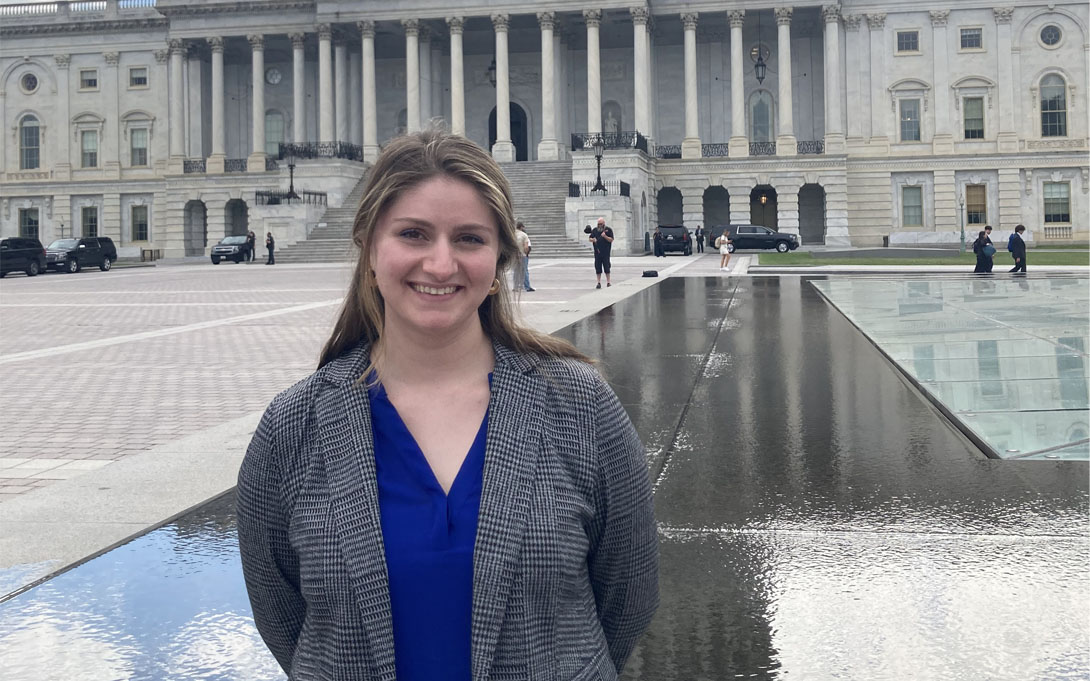
By Emily Costa, PhD Candidate, Pratt Research Group, Department of Chemistry
This past June, I was selected to attend the American Meteorological Society’s Summer Policy Colloquium. This annual event brings together graduate students and professionals for a weeklong workshop in Washington, DC, to learn about the intersections between science and policy. As a researcher in the field, I found myself particularly excited to learn about science policy through the lens of atmospheric science.
Several invited speakers discussed their work and career paths, often in the context of “science for policy” vs. “policy for science.” The program featured an impressive speaker list, including Kei Koizumi, Principal Deputy Director for Policy at the White House Office of Science and Technology Policy, and Karen St. Germain, Director of the Earth Science Division Science Mission Directorate at NASA. While most speakers came to us, we also traveled to Capitol Hill to hear from congressional staffers and AAAS fellows about their work, day to day responsibilities, and overall motivation for working in government. The range of organizations we heard from was vast, spanning from the U.S. Office of Management and Budget to the National Weather Service.
In addition to learning from speakers, the colloquium featured a hands-on legislation activity. Working in groups, we were assigned to a member of Congress (in my case, Senator Brian Schatz of Hawai’i) and tasked with proposing amendments to real pieces of legislation. This exercise, though not an exact replica of committee legislative markup sessions, provided valuable insight into the process. It also helped me develop an appreciation for representatives, who are often faced with conflicting priorities, such as the switch to renewable energy for climate change and economic incentives for fossil fuel production.
Finally, the networking opportunities provided by the colloquium will likely be just as valuable as the content itself. I was able to meet graduate students from institutions all over the country, many of whom are engaged in similar research topics. Employees from federal agencies were also in attendance, most notably the National Oceanic and Atmospheric Administration (NOAA), and I was able to hear about their career paths and advice. On the streets of D.C., I even ran into Governor Whitmer!
Overall, I am extremely grateful to AMS for their hard work in organizing the colloquium, and to the National Science Foundation and STPP for funding to attend the workshop. The colloquium is an opportunity I would recommend to anyone interested in the atmospheric sciences.
